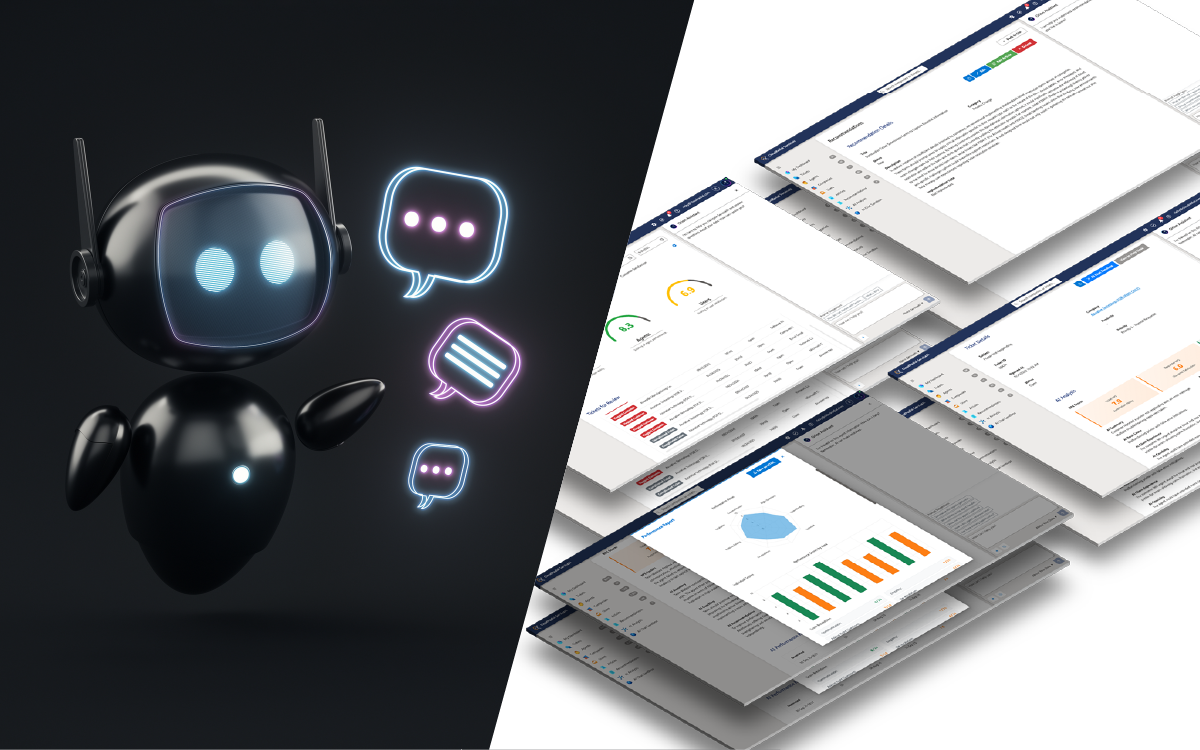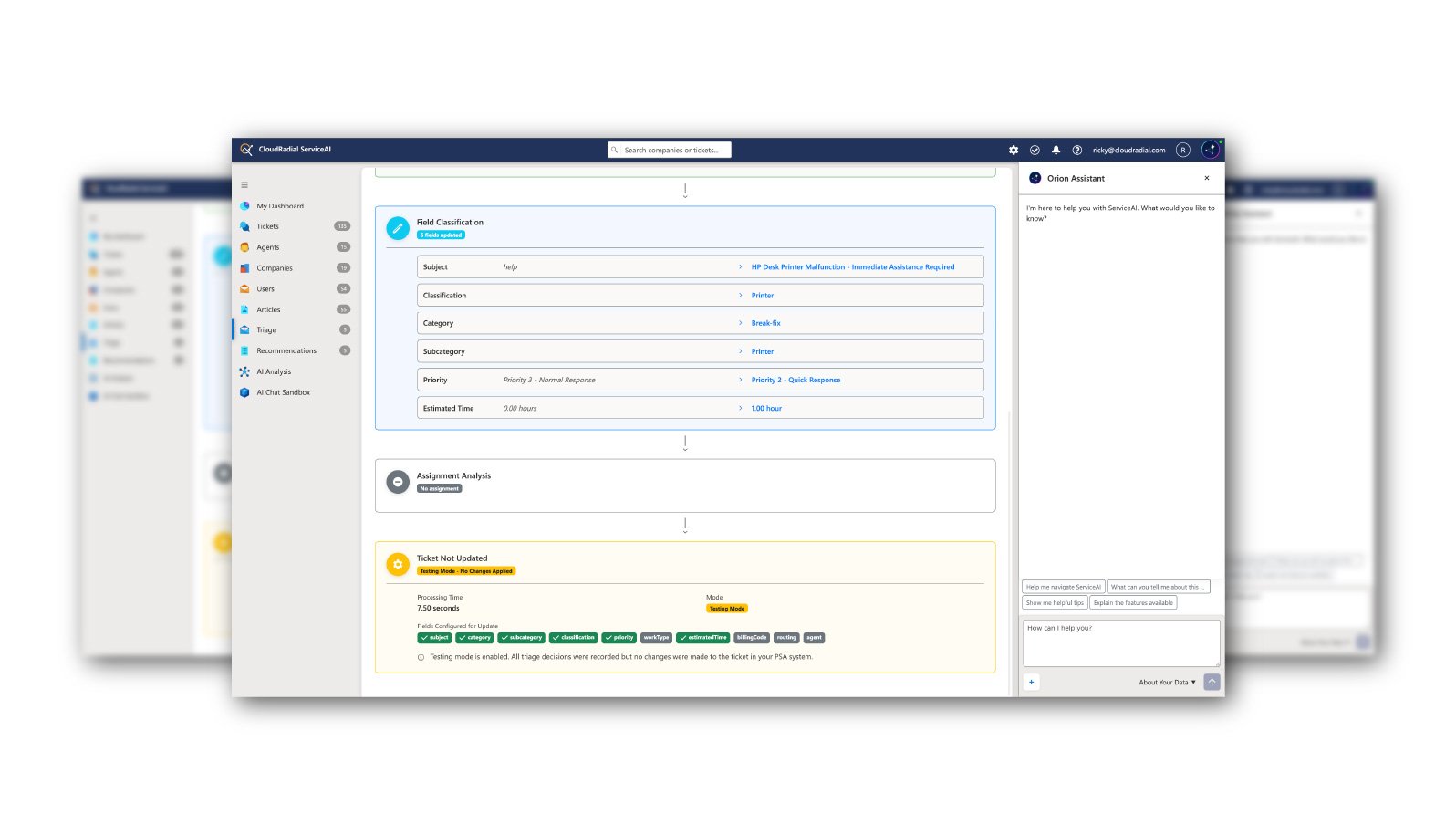How to Pilot AI at Your MSP Without Blowing Up Your Client Relationships
Here's the thing about AI pilots that nobody in the vendor world wants to acknowledge: MSPs don't get to experiment freely. You're not a SaaS startup...
Get everything you need for the ultimate client experience
Enterprise-grade infrastructure with the flexibility MSPs demand
Perfectly tailored AI that knows your specific MSP

Build your own Shopify-like store with your PSA products & distributors
Have clients to submit tickets directly to your PSA, freeing up your team's time
Pre-triage and route tickets correctly with the help of AI
Deliver instant, accurate answers that can help achieve zero-touch resolution
You'll learn things like how to add revenue without adding cost, MSP best practices, and how to master client management.

Jeff Farris, our CEO and President, recently sat down with Greg Douglass, a global team leader at Accenture, who focuses on helping Fortune 2000 companies transform their IT operations.
Greg has great insight into this innovative group of organizations, and there are some important lessons he’s learned along the way that MSPs can apply to their own businesses.
Looking at the IT function over the years, there has historically been a separation between guidance and implementation. A consultant provided advice and recommendations while a technology-focused provider—often the MSP—took that strategy and made it happen.
Today’s fast-growing companies want to align themselves with a partner that possesses both the technical talent and the thought leadership capabilities to do both. Accenture sees companies coming to them not just for counsel but because they’re confident the blueprint created will be implemented correctly.
MSPs with the right blend of experience and expertise will enjoy more lucrative partnerships and higher MRR because they can offer clients a comprehensive suite of services, products, and support to meet the full circle of needs.
The first big wave of cloud migrations is behind us, and fewer companies need help moving to the cloud. However, a growing number are now looking for advice on optimizing their public cloud environments and services.
With a growing focus on spending wisely, businesses want support to ensure their team members have the tools and skills to maximize productivity and use their cloud-based services and assets effectively.
Fortune 2000 firms are also eager to work with providers that can assist them in optimizing software and other tools to run on cloud infrastructure. An MSP with the expertise to supercharge existing cloud environments is a valuable partner.
Hiring is a challenge in every industry and even global organizations like Accenture know that the job market is competitive. Good candidates can be hard to find, but the modern digital business environment means that savvy employers can now attract people from all over the world, or at least all over the country.
And forget the generational gap that got so much attention a few years ago. The proliferation of free online training and the presence of SaaS and similar tools in nearly every facet of our lives mean that everyone, regardless of age, can get smart very quickly.
Keeping those diverse team members connected and productive is a priority. Fast-growing companies expect their employees to work smart, and they’re highly receptive to tools—automations, self-service platforms, even AI—that empower users to put their efforts into intellectual work rather than manual tasks.
MSPs can use that same approach to implement technologies such as CloudRadial to facilitate collaboration, support remote and hybrid work, and reduce manual workloads so employees can focus on higher-value activities. Leading MSPs are already transitioning from answering basic tickets, setting up software and endpoint security toward tackling broader business-type issues.
A vibrant training program is also important, so staff can stay ahead of the curve through early access to emerging technologies. Internal teams will be more productive and customers will benefit from support right away, instead of waiting six months after a new rollout for the average MSP to finally master it.
Sysadmins and engineers have long understood the value of the MSP relationship. With the ongoing spread of SaaS tools in the organization, top-level leaders are also becoming more aware of what technology can do.
Growth-oriented MSPs should identify CEOs, CTOs, CIOs, CDOs, and CFOs as critical contacts for strategic discussions since today’s conversations are about so much more than endpoint security and software licenses.
MSPs that want to grow their businesses will also put an emphasis on understanding not just the technology footprint of a client organization, but their industry, what their competitors are doing, and their personal pain points around every internal operational area. An MSP can then work with those senior decision makers to solve the problems that stand in the way of getting the business where they want it to go.
It’s important to remember that the needs and perspectives of the C-suite are different than others in their organization. The world is becoming massively complex for CIOs and CTOs, many of whom within the Fortune 2000 sector wear a lot of hats. Accenture has a broad client base, and Douglass says there have never been more tools, data, pressure, concern about cyber risk and similar issues being thrown onto the plates of CTOs and CIOs.
Fortune 2000 leaders already have a pile of solutions on hand—they don’t want to be sold another. Instead, MSPs can help by reducing the complexity of the technology stack. Be ready to demonstrate how easily tools and services can be implemented and integrated into the existing environment.
Master the art of articulating how the portfolio of solutions solves the C-suite’s real-world problems and fits in the firm’s broader ecosystem.
In contrast to the early days of managing IT spend, where dollars stretched across both CapEx and OpEx, CIOs and CTOs are now trying to do more with less—and sometimes with almost no CapEx to speak of at all.
Now the spend discussions are all about consumption, but that shift makes it difficult for the C-suite to understand the value the organization is getting in this new environment. Maximizing efficiency in the utilization of resources is one of the hottest topics among the Fortune 2000 set as they bustle their way up the ladder.
And in today’s financial and economic environment, more CFOs are pushing back on unfettered (and often unmetered) consumption. MSPs that can help clients figure out how to get more miles per gallon out of every dollar of spend are likely to see their businesses boom.
Fortune 2000 firms are a fantastic market for MSPs, as evidenced by Accenture’s long-standing success with these energetic and forward-looking organizations. MSPs that have the tools to demonstrate their value—through helping businesses achieve the outcomes that matter most and delivering a strong rate of return on customers’ technology investments—are a natural fit for companies with aggressive growth rates and ambitious goals.
CloudRadial’s CSA is a core part of those capabilities, and we can help position your MSP for tremendous success no matter your customer base.

Here's the thing about AI pilots that nobody in the vendor world wants to acknowledge: MSPs don't get to experiment freely. You're not a SaaS startup...

Let's get something out of the way early: when most MSP owners hear "AI for your service desk," they picture a chatbot. Some widget sitting on a...

CloudRadial ServiceAI is purpose-built AI for MSPs, trained on your tickets, your clients, and your solutions. Get accurate support suggestions,...